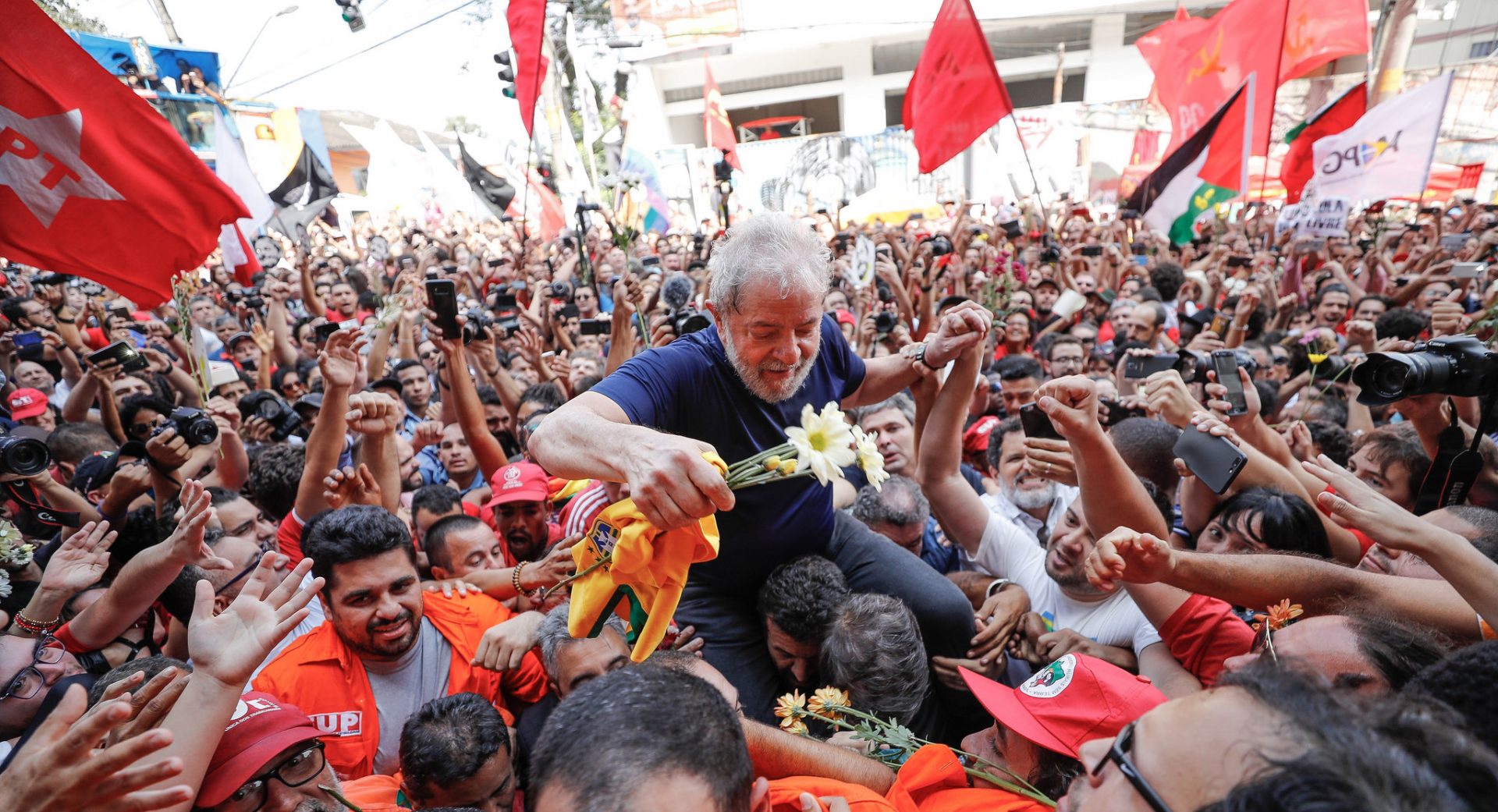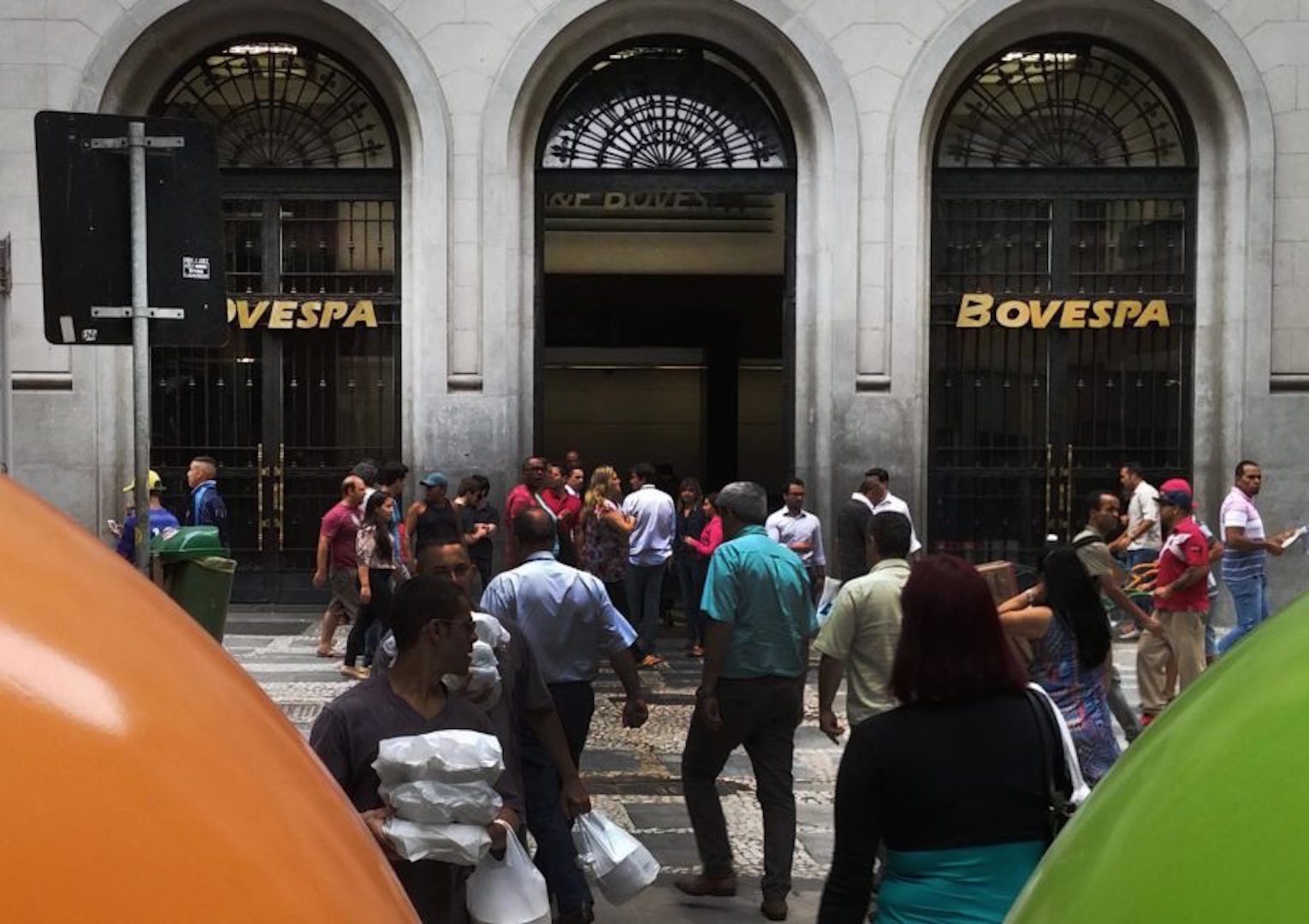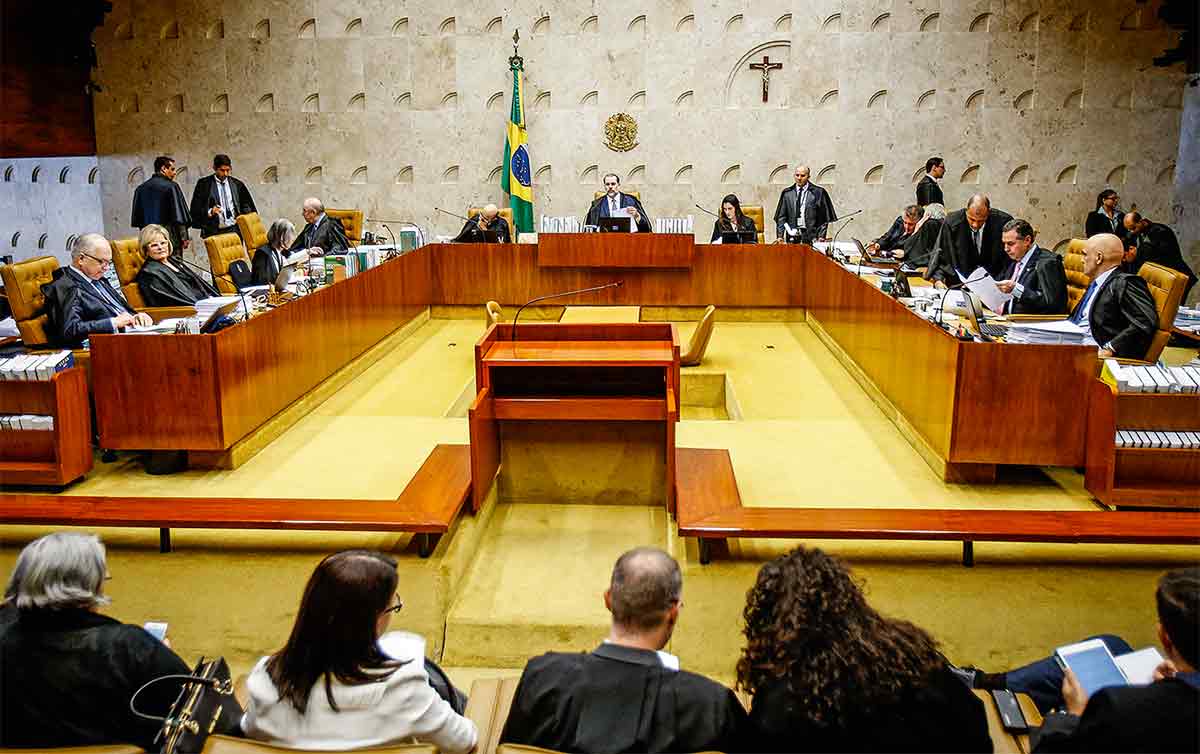RIO DE JANEIRO, BRAZIL – The IBOVESPA closed in decline and the dollar climbed on Friday, November 8th, with the market reflecting the release of ex-president Luiz Inácio Lula da Silva from prison in Curitiba.

The main index of the Brazilian Stock Exchange dropped 1.78 percent, to 107,628 points. The financial volume was R$20.2 billion.
The stock market was in decline since the market opened, but it intensified at approximately 4:30 PM when judge Danilo Pereira Jr. accepted Lula’s defense petition to release the leftist. Then it reached the interim low of 107,126 points (-2.24 percent).
Over the week, the IBOVESPA has accumulated a low of 0.72 percent, interrupting a string of four weekly highs.
The commercial dollar, which was rising since the opening of the trading session, also increased its appreciation in the late afternoon with the news about ex-president Lula.
The currency closed up 1.83 percent to R$4.1677 in purchases and R$4.1684 in sales. Over the week, there was an appreciation of 4.43 percent – the largest weekly high since the period between August 20th and 24th, 2018.
Dollars maturing in December rose 1.58 percent to R$4.168.
The decision on Lula’s release also influenced the futures market. The intra-financial deposit rate contract for January 2021 closed stable at 4.55 percent and the intra-financial deposit rate for January 2023 gained 0.71 basis points at 5.68 percent.
Repercussion
Carlos Daltozo, Eleven Financial Research’s variable income director, states that the stock market movement after Lula’s release is a short-term speculation-motivated volatility. In his opinion, the leftist’s release was widely expected following last Thursday’s STF (Supreme Court) ruling.

According to the analyst, what is structurally negative in this whole scenario is the legal insecurity brought about by the Supreme Court. “The STF voting differently every year leads to insecurity. This frightens foreign investors. This issue is what weighs most, since Lula’s release after the ruling was inevitable,” he says.
Daltozo believes that it is not yet possible to predict the decision’s political impact. “It may change something for next year’s municipal elections, but it is still too early to say. There’s a lot of haste”, he defends.
In the opinion of Eduardo Guimarães, a specialist in Levante shares, those most surprised by Lula’s release are foreign investors.
“They [foreigners] do not understand how a person convicted in two court levels can be released. If until now foreigners hadn’t entered the stock market, even with the Social Welfare reform, it could delay this return even further,” he said.
The ex-president’s release, according to Guimarães, leads to “legal insecurity and a feeling of impunity. The flow of foreign capital on the stock market is negative at US$1 billion. It could get worse. Before, there was nothing in favor of it. Now, there’s something against it.”
For Felipe Berenguer, political analyst of Levante, the decision to release Lula changes the political situation, but it is still too early to say if there will be any impact on the government’s reformist agenda.
“The trend is for greater polarization now. President Jair Bolsonaro may gain momentum among people with an anti-PT discourse, and he should use this to his advantage. On the other hand, the opposition, which was based on ‘Free Lula’ rhetoric, will now reorganize itself to exert more pressure in Congress.”
The political analyst believes that next year’s municipal elections will be a good indicator of this. “The parties are very organized in regional headquarters. It is important to gain regional power, and only then to think about running for the Planalto in 2022”.
Federal Supreme Court (STF)
Yesterday, the STF revoked the possibility of imprisonment before all appeals have been exhausted, which benefits almost 5,000 people currently impriosned and motivated the release of Lula.

After five sessions and an equal split in the Court, the tie was broken with the vote of Presiding Justice José Dias Toffoli. He said that the 2011 amendment to the Code of Criminal Procedure (CPP) defined that “no one will be arrested except in flagrante delicto or as a result of a final and unappealable sentence”. According to Tofolli, the rule is constitutional and prevents imprisonment after an appellate court affirmation of the sentence.
In reaction to the Supreme Court’s decision, Congress tries to organize itself to approve a proposed constitutional amendment (PEC) that would reverse the understanding that imprisonment can only come after all appeals have been exhausted.
However, Chamber president, Rodrigo Maia, said – before the end of the STF judgment – that he would not confront the Supreme Court. “We have to be careful because we had the opportunity to deal with this (provisional imprisonment) in March. To consider proposals soon after the Supreme Court had decided it was going to revisit the issue may seem like we’re trying to confront the Supreme Court and that’s not the case,” he said.
Estadão newspaper reported that Senate President Davi Alcolumbre also rejected the idea. “This has no perspective,” he said when dealing with the issue. Yesterday, Alcolumbre did not want to comment. In reaction to the trial, Senator Simone Tebet, president of the CCJ (Constitution and Justice Committee) in the Senate, said she intends to submit for discussion a PEC that authorizes imprisonment after an appellate court affirmation of the conviction.
In addition, Article 283 of the Code of Criminal Procedure (CPP) – according to which “no one may be arrested except in flagrante delicto or by written and reasoned order of the competent judicial authority, as a result of a final sentence or, in the course of the investigation or proceedings, as a result of temporary imprisonment or preventive detention” – is in accordance with the principle of presumption of innocence, a guarantee provided for in article 5, item LVII, of the Federal Constitution.
The decision, however, does not preclude imprisonment before appeals are exhausted but establishes the need for the defendant’s situation to be individually analyzed, with proof of the existence of the requisites for pre-trial detention set forth in article 312 of the CPP.
Source: InfoMoney

